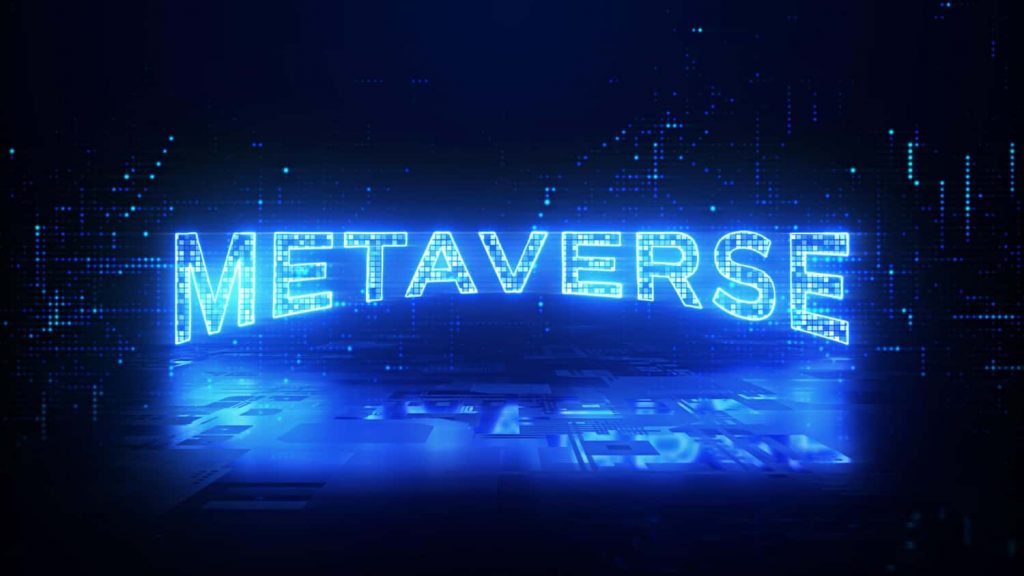This article is written by Atryee Dutta
Introduction to Arbitration
Arbitration denotes an alternative dispute resolution method in which the parties in dispute unanimously agree to have their case heard and settled by a qualified arbitrator out of court. The essential job of an arbitrator is to apply the law and make a decision by announcing a supposed “arbitral award”. It uses only when the parties agree to the arbitration proceeding. Generally, arbitral awards are conclusive and binding. But they can be challenged in a court of law if the situation is extreme.
The use of technologies to aid in international Arbitration is increasingly becoming prevalent. The arbitration fraternity, in particular, has demonstrated a willingness to integrate technology that improves efficiency, naming the need for ‘greater efficiency, especially via technology’ as the most likely to impact the eventual fate of arbitration proceedings.
The COVID-19 epidemic posed obstacles for the dispute settlement community, but modern technological capabilities enabled methods to be modified to new situations. We investigated the impact of new tech in Arbitration, including how it has improved in recent years, which technology-supported modifications may intend to be preferred by users in the future, as well as whether adaptations in practice noted during the global epidemic represent an organic, ongoing evolution rather than a crisis-driven reformation.
This article focuses on Arbitration and primarily discusses the future of Arbitration in the world of Metaverse, which has become widely popular over the past few years.
Double Requirements of Arbitrators under the Arbitration Act 1996 – Legamart
An overview of Metaverse

With the fast emergence of the internet and virtual reality technologies in the twenty-first century, and the COVID-19 epidemic compelling humans to shift to virtual ways of communicating, the worldwide digital world has advanced and re-emerged as the ‘Metaverse.’
Metaverse refers to a parallel digital universe with interconnected networks of 3-D virtual worlds which might bring together actual people from around the globe in the guise of avatars via upgraded technology. Metaverse, as a digital reality, intends to promote itself as the forthcoming generation of the web by letting people feel and experience virtual reality as interactive members rather than simply a spectator on screen.
The capacity to acquire, possess, and trade imaginary digital goods in real-time across all social and geographic boundaries is what distinguishes Metaverse. However, as the technologies behind Metaverse evolve, expanding the variety of actions available through Metaverse, the risk of increased legal complications grows, perhaps leading to future disputes.
During the pandemic, modern technology enabled different Courts in India and worldwide to switch to a virtual form of hearing. Such technology also expanded to modalities of ADR, allowing parties to settle conflicts through virtual processes. As conflict resolution evolves towards the virtual domain, it is unavoidable that the Metaverse will play an important part in future dispute settlement.
Digital Future of Arbitration

All issues peacefully resolved outside of court can be resolved through alternate dispute resolution. Many nations and their citizens have used it informally to resolve conflicts for millennia and throughout history. In modern times, governments have formalized the use of ADR to handle any issues resulting from commerce and business on an international scale.
ADR approaches are non-judicial and always deal with disputed situations that the agreement between the parties within the law may govern. This notion is based on the most widely accepted belief that justice delayed is justice denied.
Technology is radically altering how individuals, corporations, and nations engage with each other. Technology mergers and acquisitions valuations and quantity will continue to dominate at the company level in 2022, notably in the EMEA area. Tech-driven partnerships (JVs) and other collaboration arrangements have also become essential to company strategy in various industries. At the legislative level, technology is presenting unique policy concerns and putting limits between business operations and government laws.
Because the Metaverse has been a legal void since its conception, the lack of statutes, research work, and legal precedent on the Metaverse might lead to ambiguity in the sorts of issues that may occur. Many conflicts involving the Metaverse are connected to Rights in Intellectual Property because the Metaverse is made up of virtual market spaces, allowing for copyright, patent, and trademarks to be violated. Most IP rights agreements are subject to disputes since they were drafted before the Metaverse’s conception.
Arbitration, as it resolves concerns of jurisdictional and appropriate laws, might be an efficient match for settling such conflicts about rights to intellectual property inside the Metaverse. Because most nations do not have legislation recognizing rights of intellectual property within the Metaverse, nor have they specified their Metaverse regulatory ambitions, international Arbitration may help address such conflicts.
Moreover, Arbitration would provide such parties liberty in determining the applicable norms and regulations governing their dispute. Furthermore, because the claimed violation of intellectual property rights would occur in the Virtual world, Arbitration would aid in resolving any jurisdictional issues that may emerge.
Inter-user disagreements in the Metaverse might constitute physical-world repetitions of torts and crimes. NFT theft and assault between the avatars, for instance, have indeed occurred. The fundamental source of contention is that Metaverse users may freely give services to one another, generate virtual commodities, and openly trade these services and goods. These technologies give users the option of committing crimes and causing controversies, which is made even more plausible by the lack of any criminal justice systems in the Metaverse.
Arbitration in Virtual Reality
The assemblies of international arbitration professionals in Virtual reality technology can be conducted with the help of software like ArbTech. VR is the construction of an online presence that mirrors our human interactions in the actual world. It encompasses much more than teleconference, digital case monitoring, e-evidence, digital testimony, and client testimonials.
As the international arbitration community displays an interest in utilizing technology in the future, VR is expected to emerge as a soon-to-appear modality of Arbitration, with several Arbitral tribunals conducting mock Arbitration using Virtual – reality setups.
VR helps one feel as if one is in reality as if one were in the same room as someone from the real world. It feels more natural than looking at a person in a two-dimensional Zoom. While comical, avatars mimic the actual person’s physical movements and expressions. One may customize the avatar’s look, including body form, skin colour, clothing, and hair. This enables anyone to take notes, exchange presentations, and sometimes even look at their emails, just as one would inside an actual meeting.
The technology is currently under process. Some participants can have trouble connecting their headsets to the Oculus software on our laptops/phones, while others may have difficulty accessing someone else’s workroom. As Meta manufactures both, Horizon Workrooms are exclusively available in VR with Oculus headsets.
The main drawbacks include the struggles of facilitating different time zones, the complexity for clientele and Arbitrators to communicate during hearing sessions, technological glitches, issues about the confidentiality of prosecution and cybercrime, the inability to manage witnesses and evaluate their authenticity, and the discrepancy in connectivity to and affordability of comparable state of modern technologies between both the parties as well as the Tribunal.
Potential issues while conducting arbitral proceedings digitally

With technology, and the Metaverse more specifically, organizing arbitral proceedings involves various legal issues. They are discussed as follows:
Information Security and Confidentiality
The confidentiality of the proceedings and the arbitral award is critical in Arbitration. However, maintaining secrecy in virtual hearings is more challenging than in-person hearings. This is due to the ongoing data exchange between participants, the Arbitral Tribunal, testimonies, and specialists.
Arbitral hearings usually kept private, may be inappropriately recorded by anybody in a digital environment. In addition, a security breach might occur due to the files transferred between the parties. Even when end-to-end encryption is used, privacy and data protection concerns are not eliminated. Data privacy regulations differ among jurisdictions.
While Draft International Council for Commercial Arbitration (ICCA)-IBA Roadmap to Data Protection in International Arbitration (‘the IBA Roadmap’) published in 2020 provides data security and privacy recommendations, it is crucial to remember that it is rooted in the European Union’s General Data Protection Regulation (‘the GDPR’).
The UNCITRAL Arbitration Regulations implicitly instil the notion of secrecy of proceedings in Article 28, while the confidentiality of Arbitral Awards is embodied in Article 34.
Parties need to be treated fairly and equally
Data privacy laws vary from one nation to the next. While the Draft International Council for Commercial Arbitration -IBA Roadmap released in 2020 offers privacy and data security suggestions, it is essential to note that it is based on the European Union’s General Data Protection Regulation (‘GDPR’). In addition, institutional rules, including the International Chamber of Commerce (ICC) Rules of Arbitration, 2021 (‘the ICC Rules’) and the Singapore International Arbitration Centre (SIAC Rules) of Arbitration, 2016, also mandate the Arbitral Tribunal to “act fairly and impartially.”
To ensure fair and equitable treatment of all parties, all parties engaged must have accessibility to equivalent, if not identical, technology.
This has its own set of technological usability and pricing issues. If the equipment is available, the participants might need to be more familiar with its use; that is, there may be a gap in their technical knowledge. There is also the matter of technological malfunctions. Whereas most Arbitration Guidelines treat in-person and virtual hearings equally, the questions that occur only in remote hearings still need to be addressed.
Parties’ Virtual Identity
Currently, the use of Virtual reality technology in Arbitration is restricted to digital hearings and data management systems. However, Arbitration might be conducted entirely using VR-based technologies on the Metaverse. This might lead to the parties utilizing virtual ‘avatars’ in arbitral proceedings. Furthermore, the parties may engage in agreements using their imaginary ‘avatars.’
This, together with the expanding usage of blockchains, can give birth to a slew of difficulties for which the Arbitration Act is unprepared. Furthermore, determining the authenticity of the Arbitrator’s revelations via VR is difficult.
Even though it is deemed that the Arbitrator did not intentionally participate in a contradictory Arbitration, the whole Arbitration proceedings may be set aside due to the Arbitrator’s lack of party autonomy. There is no assurance that the actual preliminary hearing will go well, no matter how many times a trial hearing is held.
Owing to the online setup, lawyers for the opposing side and the Dispute Settlement Panel may need help to monitor the witness’s nonverbal cues, which is critical during cross-examination to establish the overall reliability of his testimony.
Conclusion
The Metaverse cannot avoid the obvious flaws of a physical civilization, which is why many arguments occur in the real world and are repeated within the Metaverse. While some issues, such as disputes over intellectual property, happen in the real world but have their essence in the Metaverse, others, like theft and fraud, occur inside the Metaverse itself.
Both issues can be resolved through different ODR and ADR methods, particularly Arbitration. From this perspective, it is critical to comprehend the evolution of arbitral proceedings and their potential role in settling conflicts inside the Metaverse.




